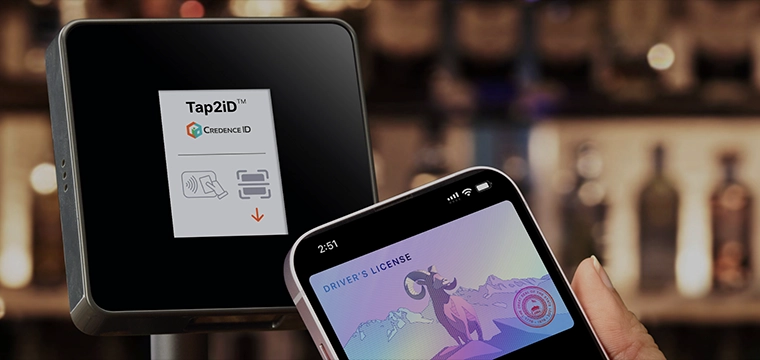
By Andy Williams, Associate Editor, Avisian Publications
They consider themselves special. They expect to earn lots of money when they graduate from college, profanity in proper conversation is no longer off limits and they probably had a huge hand in electing the latest president of the U.S. They’re part of the Millennial Generation, or Gen Y, and colleges need to learn how to deal with them.
That’s the message Kristy Vienne, director of Bearkat OneCard Services at Sam Houston State University, Huntsville, Tex., offered up to participants at NACCU’s annual conference in Orlando, Fla. She talked about what some of this new generation of students expect and how the university, specifically the card office, can deal with them … and their parents.
Yes, parents. With this generation, the college is getting both a parent and a student, she said. These are so-called “helicopter” parents, because they hover closely overhead, rarely out of reach whether their children need them or not. “Sometimes, I call them Blackhawks,” she laughed. In fact, these parents look upon their students’ college experience as a joint venture between parent and child.
Millennial students grew up in an environment where everyone wins. “They don’t keep score anymore. They want everybody to be equal. They win trophies for participation rather than for winning. As a result, they still feel everyone should get a prize,” she said.
Depression and anxiety are higher among millennials, but they are very tolerant of others. “They have a sense of optimism. They have come to expect good news,” she added.
They are also open minded. “They don’t see color. It’s okay to be different,” she said. Their mantra might be: ‘Free to be me, free to be you,’” she added. “They’re very diverse and they see their clothing as a personal expression.”
Sometimes the self censor that many people have is absent with this generation. “They often share too much information and curse words are no longer taboo. We may see curse words as disrespectful but they don’t. I would never consider turning in an academic paper with curse words,” Vienne says. They do.
Millennials do trust baby boomers. “Because they have been rewarded by them their whole lives,” she says.
These students have also mastered the art of negotiating because that’s what they’ve done with the parents. They’ll even try “to negotiate with you for that A,” she said.
Being Internet-savvy, leads to an instant gratification mentality among millennials. “They want it now,” said Vienne. “And they want the latest and best technology.”
But that doesn’t mean they’re lazy. Far from it, Vienne said. They are more driven to succeed then previous generations. They expect to succeed. The difference is that they may not be willing to put in the time. “They’re very ambitious. What they don’t like is climbing the ladder to get there,” she said.
So what strategies can card offices, or other college administrators, use in coping with this new breed of student?
Since they think they’re special, treat them as such. It doesn’t have to be much, simply acknowledging them when they first enter the campus office is a good start, Vienne said. “It’s a small thing, but it does help. If they send you an email, respond within one or two hours.”
Remember instant gratification? “They may send you a follow-up email wanting to know why you’re ignoring them,” said Vienne. “Prepare for students who are high maintenance and who expect to be treated like VIPs. Office staffs should be aware of a millennial’s needs.”
Vienne says understanding millennials is important for college administrators because it can help them develop more effective policies, programs and services for the workplace.
The generation is also used to living by rules, but they have to be clearly defined and in writing, she said. “If you expect them to follow rules, you better have it in writing. They will reject it if it’s unwritten because they do not like grey areas, such as the ‘unwritten rule,’” she added.
Parents of millennial students, she said, will call the university office, usually bypassing the normal chain of authority, to seek resolution to the smallest complaint.
They also expect to have a lot more say and demand much more input in their children’s education, she said. “Parents rush to prevent any harm or failure from befalling them or letting them learn from their own mistakes, sometimes even contrary to the children’s wishes,” said Vienne.
Universities can use excessive parental involvement to their advantage, said Vienne. Create an open forum for parents to be involved proactively. “Get parents on your side.”
One problem has been that universities may spend thousands of dollars marketing to students, but these materials may not be what millennials need. “What we’re delivering and what they want may not be the same thing. We’re designing information for students, but it’s the parents who are reading it.”
Vienne’s school offers special programs for parents. Even simple things like providing them donuts during student orientation can go a long way towards further involving parents. “We have parent-dedicated Web sites and marketing materials just for parents,” she said.
As to keeping parents informed, colleges can only go so far, she added, thanks to Family Educational Rights and Privacy Act, better known as FERPA. This federal regulation dictates what parties can be given access to personal information about students and it clearly restricts parental access to many aspects of their children’s records. “Develop handouts that explain your limitations in sharing information. Employ FERPA on your side. Let parents know we’re working to protect the identity of our students.”




